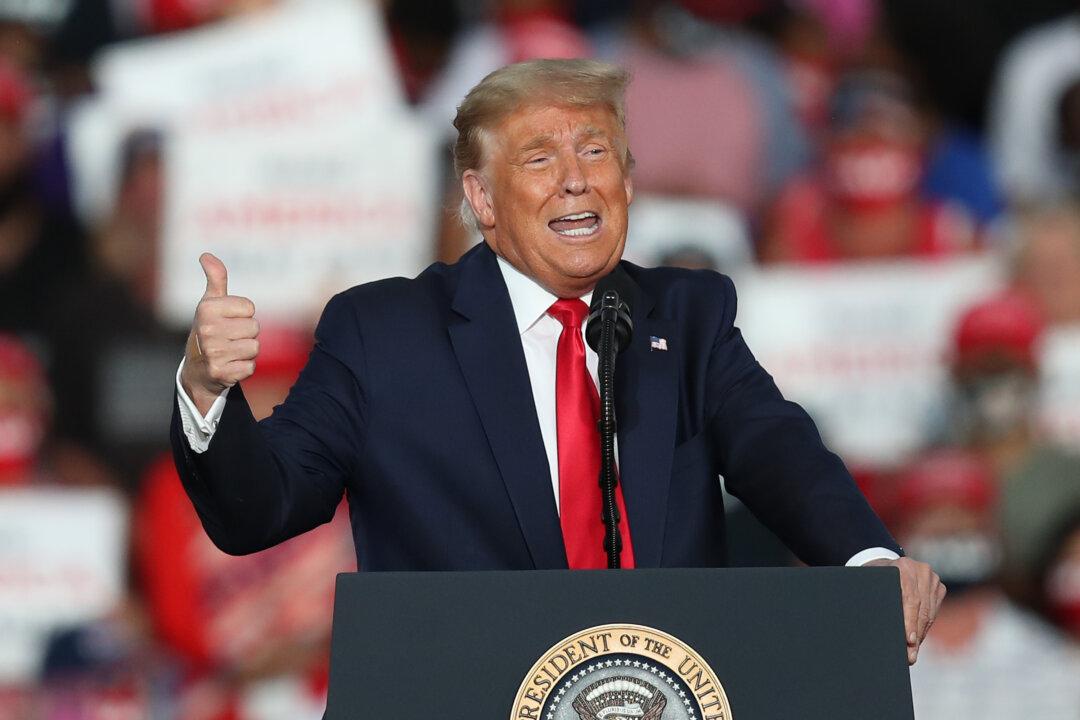President Donald Trump on Wednesday criticized a decision by Facebook and Twitter to limit the distribution of a New York Post story about Democratic presidential candidate Joe Biden and his son, Hunter, and called for a repeal of Section 230 of the Communications Decency Act.
“So terrible that Facebook and Twitter took down the story of ‘Smoking Gun’ emails related to Sleepy Joe Biden and his son, Hunter, in the @nypost,” Trump wrote in a tweet, referring to a story about Hunter Biden over which Facebook and Twitter took action earlier in the day to stop people spreading.





